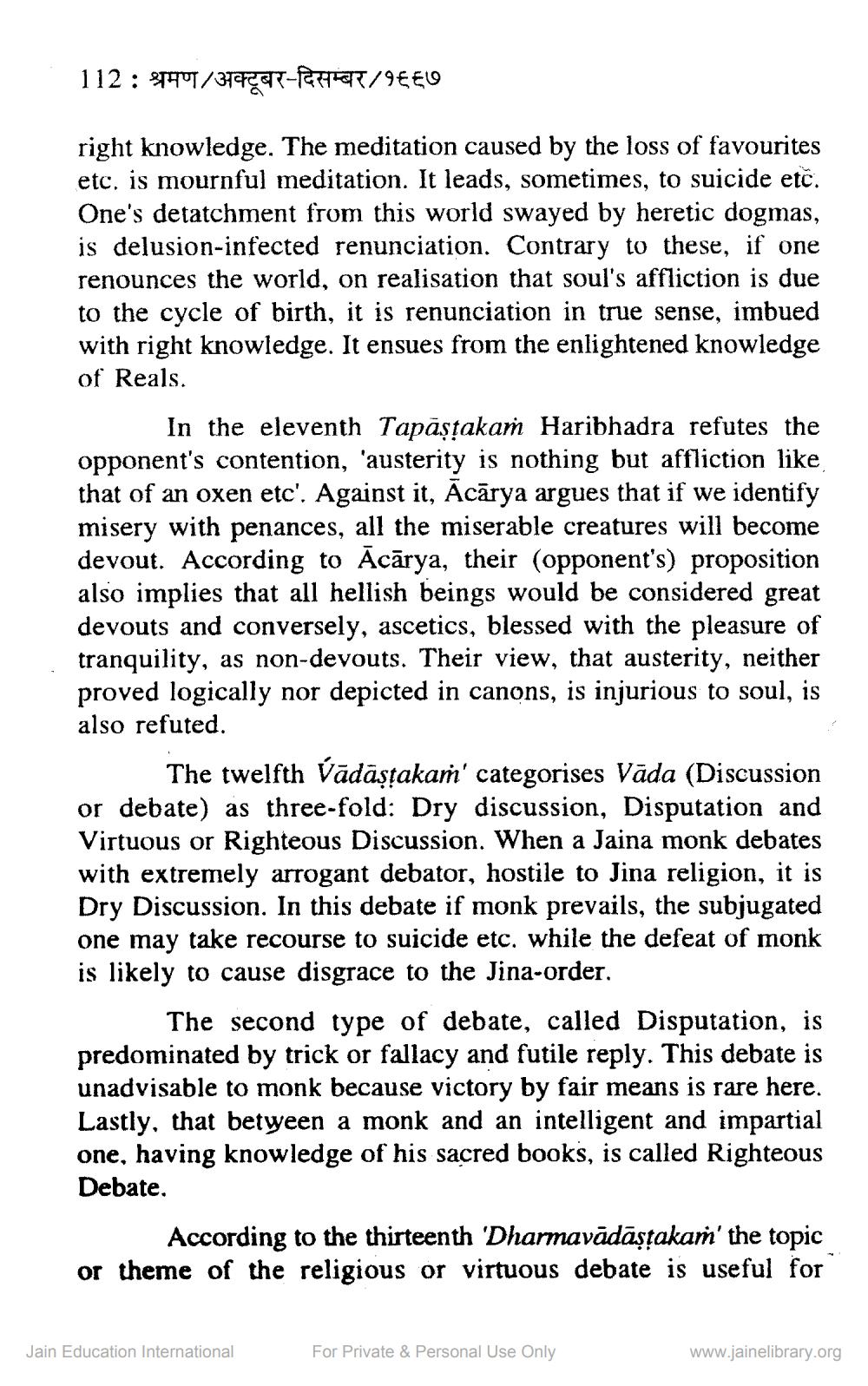________________
112 :
477/377987T-Facy*/9EEL
right knowledge. The meditation caused by the loss of favourites etc, is mournful meditation. It leads, sometimes, to suicide etc. One's detatchment from this world swayed by heretic dogmas, is delusion-infected renunciation. Contrary to these, if one renounces the world, on realisation that soul's affliction is due to the cycle of birth, it is renunciation in true sense, imbued with right knowledge. It ensues from the enlightened knowledge of Reals.
In the eleventh Tapāstakam Haribhadra refutes the opponent's contention, 'austerity is nothing but affliction like that of an oxen etc'. Against it, Ācārya argues that if we identify misery with penances, all the miserable creatures will become devout. According to Acārya, their opponent's) proposition also implies that all hellish beings would be considered great devouts and conversely, ascetics, blessed with the pleasure of tranquility, as non-devouts. Their view, that austerity, neither proved logically nor depicted in canons, is injurious to soul, is also refuted.
The twelfth Vādāstakaṁ' categorises Vāda (Discussion or debate) as three-fold: Dry discussion, Disputation and Virtuous or Righteous Discussion. When a Jaina monk debates with extremely arrogant debator, hostile to Jina religion, it is Dry Discussion. In this debate if monk prevails, the subjugated one may take recourse to suicide etc. while the defeat of monk is likely to cause disgrace to the Jina-order.
The second type of debate, called Disputation, is predominated by trick or fallacy and futile reply. This debate is unadvisable to monk because victory by fair means is rare here. Lastly, that between a monk and an intelligent and impartial one, having knowledge of his sacred books, is called Righteous Debate.
According to the thirteenth 'Dharmavādāștakaṁ' the topic or theme of the religious or virtuous debate is useful for
Jain Education International
For Private & Personal Use Only
www.jainelibrary.org




